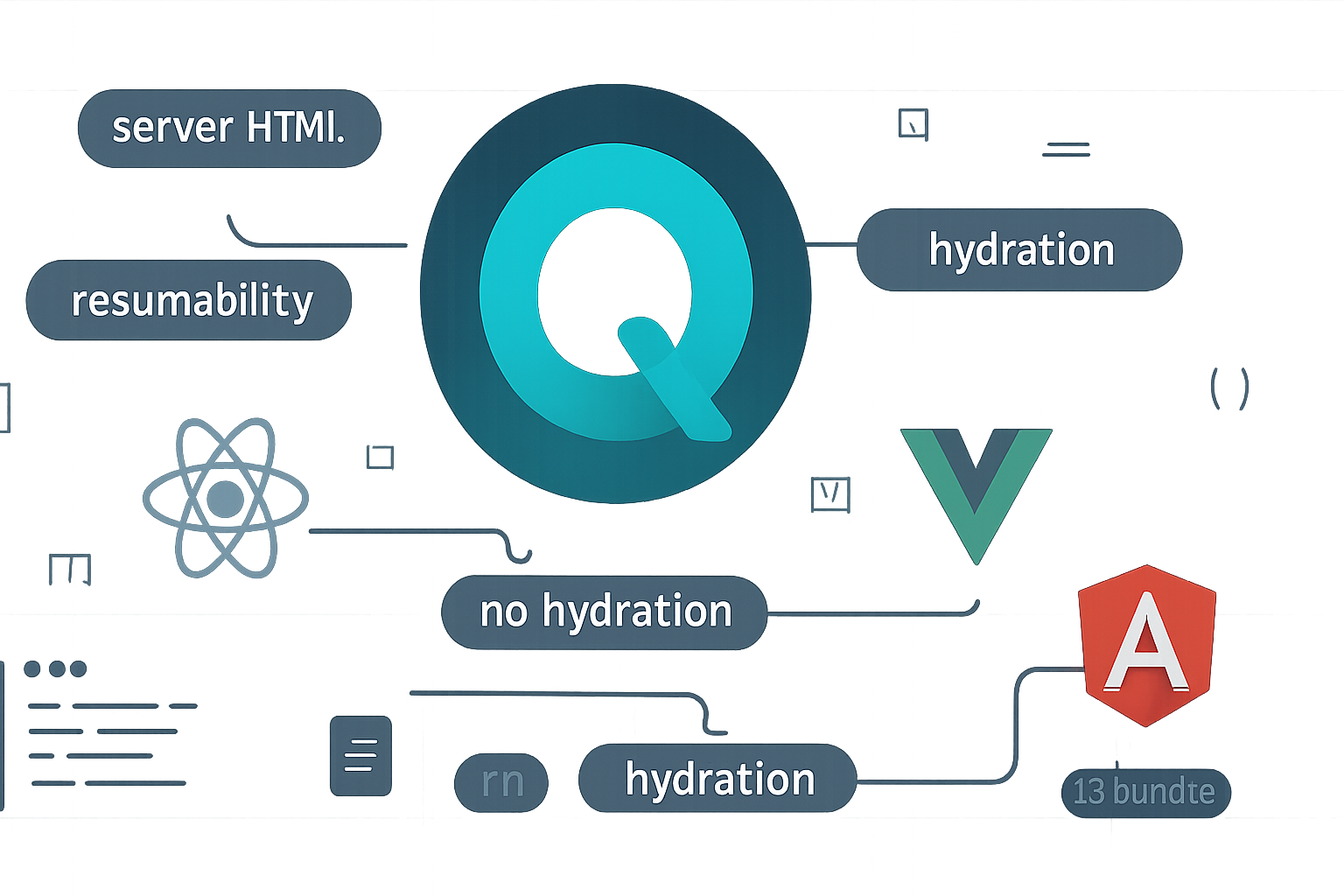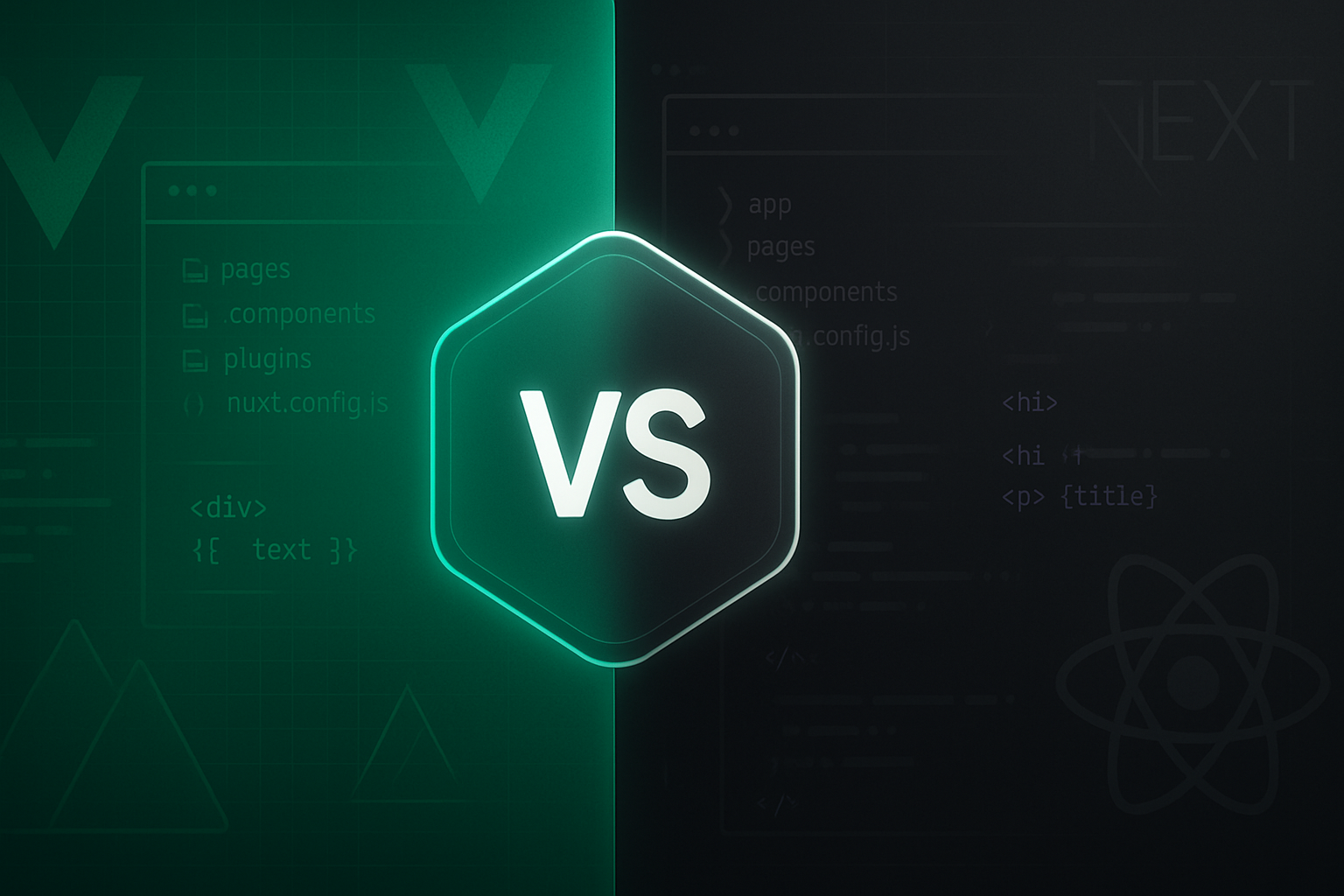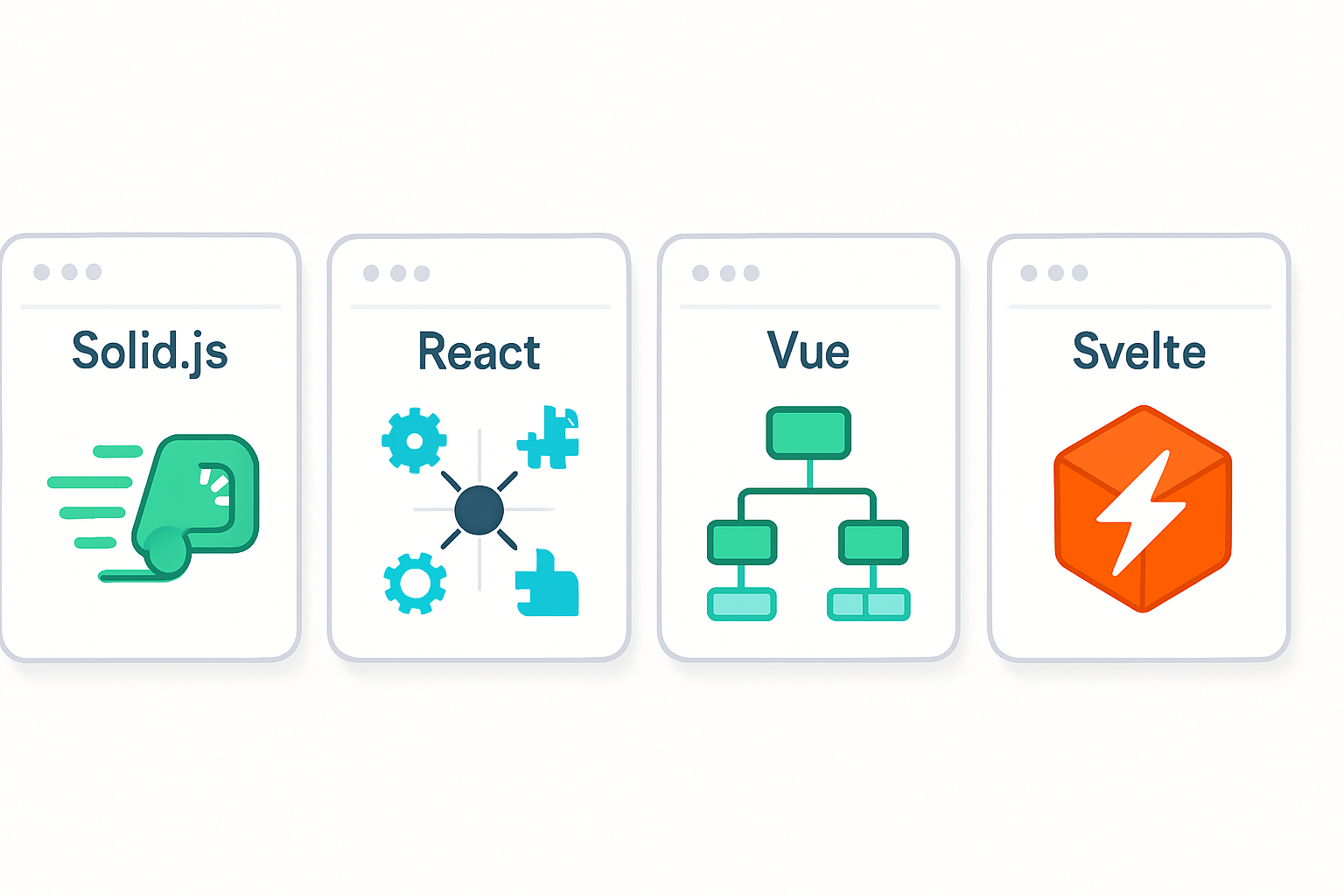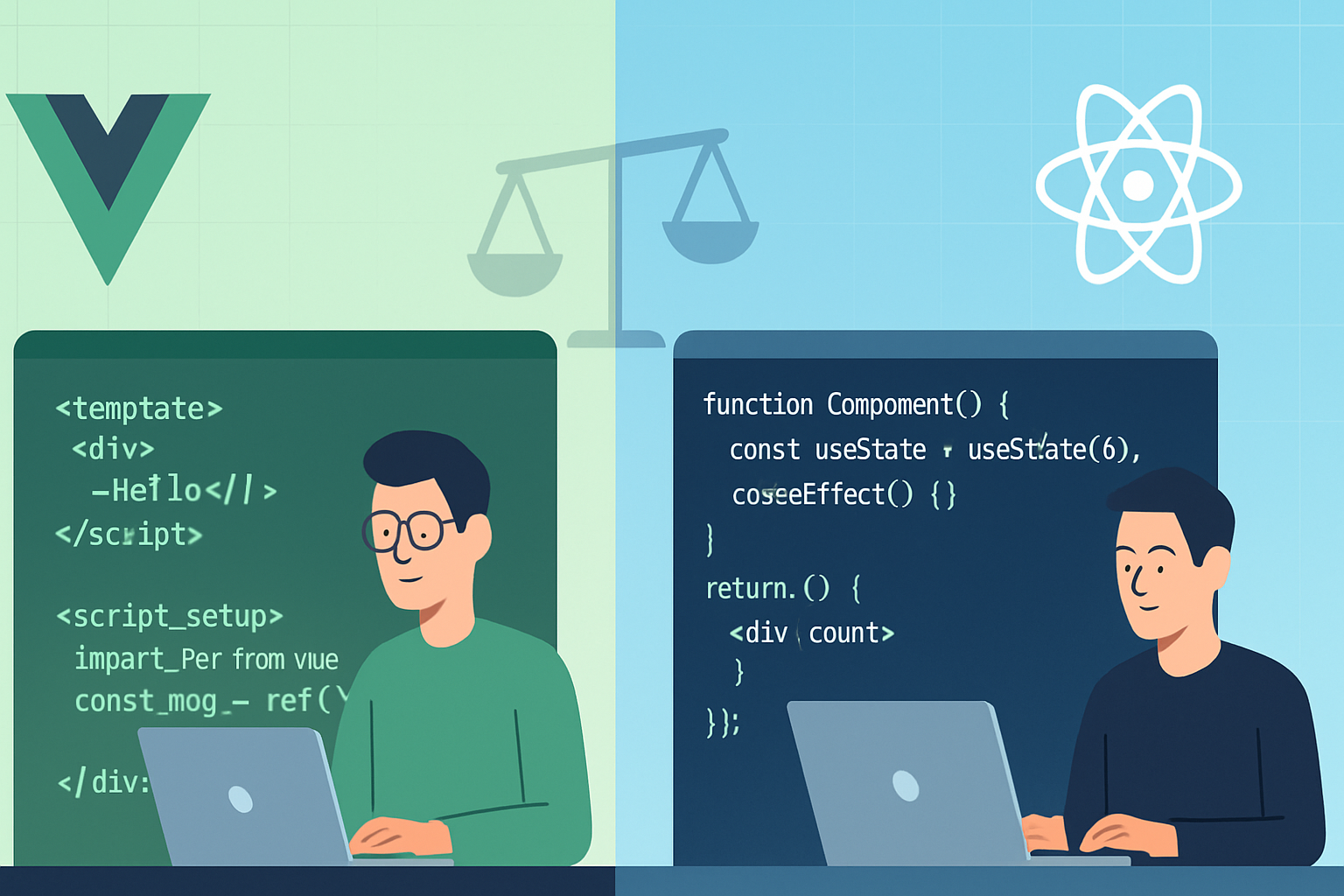· frameworks · 6 min read
The Future of JavaScript Frameworks: Will AI Tools Replace Traditional Libraries?
A speculative but grounded look at how AI tools are reshaping JavaScript development and what that means for frameworks like React, Angular, and Vue - will AI replace them, or will they evolve together?
Introduction
The JavaScript ecosystem has been shaped for a decade by frameworks - React, Angular, and Vue among them - that provide structure, conventions, and ecosystems for building user interfaces. Today, a new force is accelerating change: large language models (LLMs) and AI-assisted developer tools (GitHub Copilot, OpenAI Codex, local models like LLaMA derivatives). This article explores whether these AI tools will phase out traditional libraries or be integrated into a transformed ecosystem, and what developers and organizations should prepare for.
Where we are now: frameworks and AI in developer workflows
Frameworks still provide the blueprints for architecture, state management, rendering, and performance. They are backed by extensive ecosystems - component libraries, testing tools, build tooling, and community knowledge (React, Angular, Vue).
At the same time, AI tools have already changed day-to-day coding:
- Autocompletion and snippet generation (GitHub Copilot, OpenAI Codex) speed up boilerplate and routine code.
- Design-to-code flows (Figma, Framer and plugins) accelerate turning designs into components.
- Automated refactors, test generation, and documentation generation reduce friction for maintenance.
These tools augment productivity, but they currently rely on frameworks rather than eliminating them.
Three plausible impact paths for AI on frameworks
- Augmentation - AI as a developer assistant
This is the near-term reality. AI helps write components, suggest state transitions, generate tests and accessibility attributes, and even produce small slices of app logic. It reduces grunt work and raises the importance of higher-level skills: design, architecture, critical review, and integration testing.
Use cases:
- Prompt an LLM to produce a responsive React component with aria attributes and unit tests.
- Automatically convert a Figma design to a Vue component skeleton and wire up common props.
- Integration - frameworks with built-in AI features
Frameworks may embed AI capabilities directly: think first-class CLI features that scaffold entire functional modules using LLMs, or runtime hooks that adapt behavior based on user interaction patterns predicted by an on-device or cloud model. Framework vendors could offer official AI-powered plugins for accessibility checks, performance optimizations, or content personalization.
This path preserves frameworks but expands their scope: the framework becomes a platform that orchestrates not only rendering and state but also AI-driven concerns like personalization and adaptive UI.
- Replacement - high-level intent systems that generate apps
A more speculative future is where developers specify intent (natural language + examples) and the AI synthesizes complete apps without explicit use of a traditional framework. Instead of hand-writing React components, you might describe the app and get a runnable product back.
Variants of this are already visible in low-code/no-code tools and prototype generators. However, those generated apps often need manual adjustments for production concerns (security, accessibility, scalability). Completely replacing frameworks at scale requires solving those deeper, non-functional problems automatically.
Why wholesale replacement is unlikely - at least soon
While AI is powerful, several fundamental constraints argue against a quick replacement of frameworks:
- Complexity and non-functional requirements: Large apps are about more than components. Performance budgets, incremental rendering, caching, memory pressure, SEO, offline behaviour, and build-time optimizations are tricky and application-specific.
- Determinism and explainability: AI hallucinations and opaque decision-making are risky for production-critical code. Frameworks provide deterministic building blocks and well-understood abstractions.
- Ecosystem and integrations: Libraries, middleware, backend services, CI/CD pipelines - mature ecosystems are not trivially replaced by generated code.
- Governance, security, and licensing: Automatically generated code raises IP, licensing, and compliance concerns that require human oversight.
Therefore, AI is more likely to shift where human effort goes rather than remove it entirely.
How frameworks are likely to evolve
- AI-enhanced CLIs and generators: Imagine
create-react-app --with-aithat scaffolds not just files but full features (forms, auth flows, translations) along with tests, docs, and monitoring hooks. - Runtime AI plugins: Middleware that personalizes UI or tunes performance dynamically, controlled through clear contracts so maintainers can audit behavior.
- Model-driven UI paradigms: Higher-level declarative layers where developers define data contracts and intent; an AI maps those to optimized framework-specific components.
- Component marketplaces amplified by AI: Curated, searchable AI-powered marketplaces make it easy to compose verified components - where AI handles adaptation to your app’s theme, state shape, and types.
Risks and open challenges
- Hallucinations and correctness: LLMs can invent APIs or use patterns that are subtly incorrect.
- Maintainability: Generated code can be brittle if it’s not idiomatic or lacks clear ownership.
- Privacy and governance: Using cloud-hosted models for business logic raises data leakage concerns. Local models (e.g., LLaMA variants) provide an alternative but with different trade-offs (Llama 2).
- Skill displacement and reskilling: Roles will shift from rote coding toward design, specification, monitoring, and governance.
Practical guidance for developers and organizations
- Embrace augmentation, not replacement: Use AI tools to eliminate boilerplate, speed iterations, and produce first drafts - but keep human review and strong tests.
- Invest in contracts and types: Static typing and schema contracts (TypeScript, OpenAPI, GraphQL) help validate AI-generated code and make it safer to rely on pointers from models.
- Build guardrails: Linting, CI checks, unit/e2e tests, and runtime observability mitigate the risk of relying on generated code.
- Prefer incremental adoption: Start by using AI for scaffolded features (forms, pages) and automation (tests, docs) before governing business-critical logic.
- Focus on composition and modularity: Smaller, well-defined modules are easier for AI to reason about and regenerate safely.
Wider implications: jobs, community, and business models
- Developer roles will evolve: more emphasis on system design, product thinking, AI prompt engineering, and governance.
- Framework maintainers may offer commercial AI toolchains as a new monetization path, leading to tighter integration between frameworks and AI services.
- The community remains vital: patterns, RFCs, and shared best practices will be the backbone that prevents AI outputs from degrading software quality.
Conclusion: coexistence and convergence
AI tools are not a binary threat to JavaScript frameworks. The most likely future is convergence: frameworks will integrate AI where it provides real value (productivity, accessibility, personalization), and AI tools will rely on well-understood framework primitives to produce reliable, maintainable apps. In short, AI will change how we use frameworks - making some tasks easier and elevating others - but it won’t make frameworks irrelevant overnight.
For developers: sharpen the uniquely human skills that AI complements (architecture, testing, governance, UX). For framework authors: design extensible, auditable AI integration points. The next decade will be about building trustworthy, hybrid systems where AI and frameworks amplify each other’s strengths.
Further reading and resources
- React: https://reactjs.org
- Angular: https://angular.io
- Vue: https://vuejs.org
- GitHub Copilot introduction: https://github.blog/2021-06-29-introducing-github-copilot/
- OpenAI Codex research: https://openai.com/research/codex
- LLaMA/Llama 2: https://ai.meta.com/llama/
- State of JS (ecosystem trends): https://stateofjs.com



